Drive Safely in Winchester, VA with Top-Quality Tires from Our Tire Shop
When it comes to ensuring your vehicle’s peak performance in Winchester, VA, there’s no tire shop that compares to Mission Auto Repair. Your vehicle’s tires are its foundation, and maintaining their health is paramount for optimal functionality and efficiency. Tires can be challenging to repair correctly, but you can trust our team of expert mechanics to keep your vehicle in flawless condition. Contact our office today and experience why Mission Auto Repair is the unrivaled choice for top-notch car care in Winchester, VA!
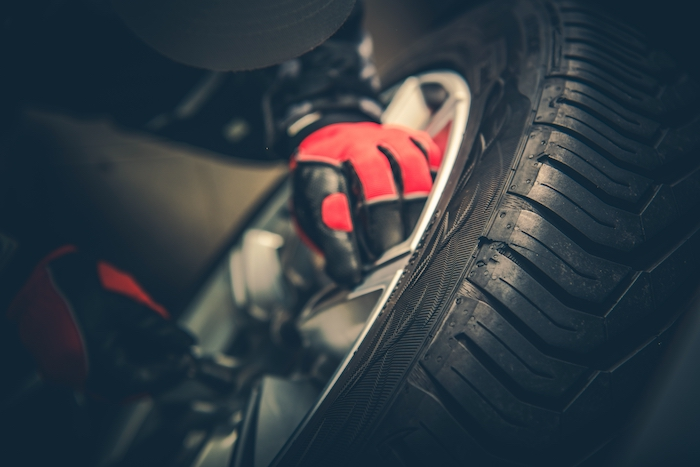
Picking the Right Tires for Your Vehicle: A Key Choice for Safety and Performance
Selecting the correct tires for your vehicle is a significant decision. They are the sole connection between your car and the road, making them vital for your safety, vehicle performance, and overall driving experience. Learn about choosing the right tires and how to make a wise choice.
Why Your Tire Choice Matters:
- Safety First: The safety of both you and your passengers is paramount. Different tires are designed for varying road conditions. Opting for the right type ensures excellent grip, handling, and braking. Properly selected tires can significantly reduce the risk of accidents, especially in challenging weather.
- Performance Boost: Tires directly impact your vehicle’s performance. Whether you desire improved handling, quicker acceleration, or a comfortable ride, selecting the right tires enhances your driving experience. Performance tires, for instance, offer top-notch handling but may not be suitable for all scenarios.
- Fuel Efficiency: Your tires can influence fuel efficiency. Some are crafted to reduce rolling resistance, leading to better gas mileage. Opting for fuel-efficient tires can result in long-term savings at the pump.
- Longer Tread Life: Tires naturally wear out, but their lifespan varies based on the type and your driving habits. Choosing the right tires can extend their tread life, reducing how often you need replacements.
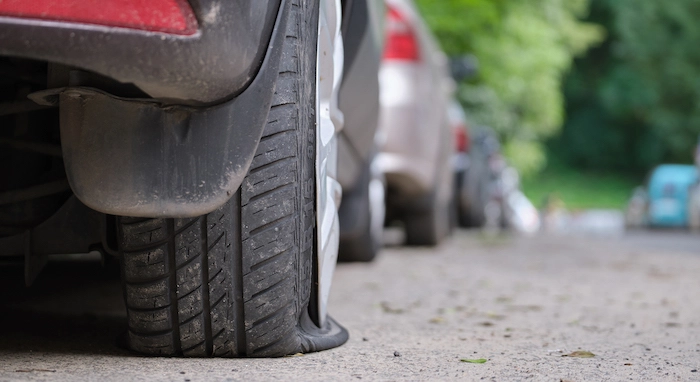
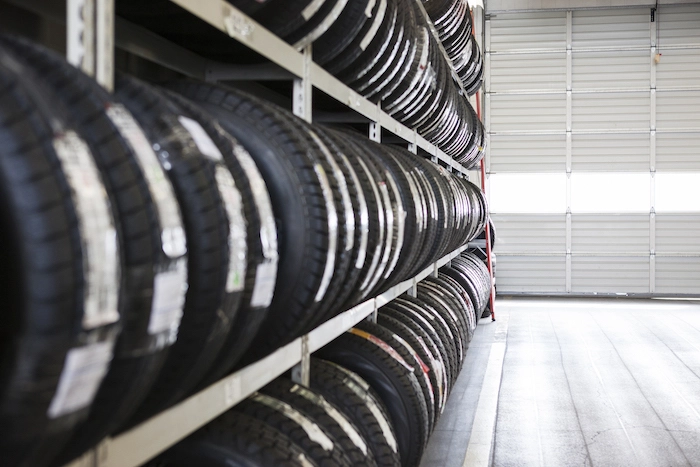
Considerations for Selecting the Right Tires:
- Tire Type: Reflect on your typical driving conditions. All-season tires are versatile and work for most situations. Winter tires excel in snow and ice, while performance tires suit sports cars. Off-road tires are ideal for rough terrain.
- Tire Size: Consult your vehicle’s manual or a tire expert at Mission Auto Repair to identify the correct size. Using the wrong size can harm performance and safety.
- Tread Pattern: Tread patterns are designed for specific road conditions. Deep, aggressive treads are great for off-roading, while shallower treads are better for smooth, paved roads.
- Budget: Consider your tire budget carefully. While inexpensive options might be tempting, investing in quality tires that match your needs is a smart, long-term choice for safety and performance.
- Brand and Reviews: Research brands and read user reviews. Insights from fellow drivers can provide valuable information on performance and durability.
Consult with the experts:
If you’re uncertain about the best tires for your vehicle, seek guidance from the professionals at Mission Auto Repair in Winchester, VA. We can assess your driving habits and your vehicle’s specifications to recommend suitable options. Choosing the right tires for your vehicle is a significant decision with far-reaching effects on safety, performance, and your wallet. Taking time to research and invest in the right tires is a wise move, ensuring a safer and more enjoyable driving experience on the road.
Tire Safety: A Guide to Tread Depth, Regulations, and Tire Replacement
Ensuring your tires are in optimal condition is essential for your safety on the road. One crucial aspect to monitor is the depth of your tire treads. Treads are the rubber portions that make direct contact with the road, and they play a vital role in maintaining traction and preventing blowouts. When your treads become thin and worn, it’s a clear indicator that replacement is imminent.
According to US regulations, your tire treads should have a minimum depth of 2/32 inches. Falling below this threshold increases the risk of sudden failure, which can lead to accidents and pose a danger to you and others. Some tires come equipped with “wear bars” as a convenient way to gauge tread depth.
However, tread depth is just one factor to consider when evaluating the need for tire replacement. Issues such as improper inflation, overloading, punctures, and other forms of damage can also necessitate replacement. It’s important to note that replacing tires is a complex task that requires professional expertise. From safely lifting the vehicle to correctly installing the new tires, entrusting the job to professionals like Mission Auto Repair is the surefire way to maximize the lifespan and performance of your tires while ensuring your safety on the road.
Tire Rotation: The Path to Savings and Safety for Your Vehicle
Don’t overlook the importance of regular tire rotation in your vehicle’s maintenance routine. This essential practice involves periodically shifting your tires from front to back or diagonally to promote even wear and extend their lifespan. Here are five compelling reasons why you should make tire rotation a standard part of your vehicle care:
- Even Wear: Over time, tires wear down unevenly due to weight distribution and steering patterns. Rotating ensures that they wear uniformly, maximizing their lifespan and enhancing your vehicle’s safety and handling.
- Improved Traction: Unevenly worn tires can lead to reduced traction and compromised road grip. Regular rotation maintains consistent tread depth across all tires, ensuring optimal traction, especially in challenging weather conditions like rain or snow.
- Enhanced Fuel Efficiency: Properly rotated tires can boost fuel efficiency. When they wear unevenly, your engine works harder, leading to increased fuel consumption. Even tire wear can help you save money at the gas pump.
- Extended Tire Life: Replacing tires can be a significant expense. By rotating them, you can maximize your investment, potentially adding thousands of miles to your tire’s lifespan.
- Safer Driving: Balanced wear and optimal traction translate to safer driving. You’ll enjoy better control, shorter stopping distances, and reduced risk of blowouts or accidents.
In conclusion, regular tire rotation is a simple yet highly effective way to ensure they last longer, improve your vehicle’s performance, and enhance your safety on the road. It’s a small investment that pays off in both savings and peace of mind.
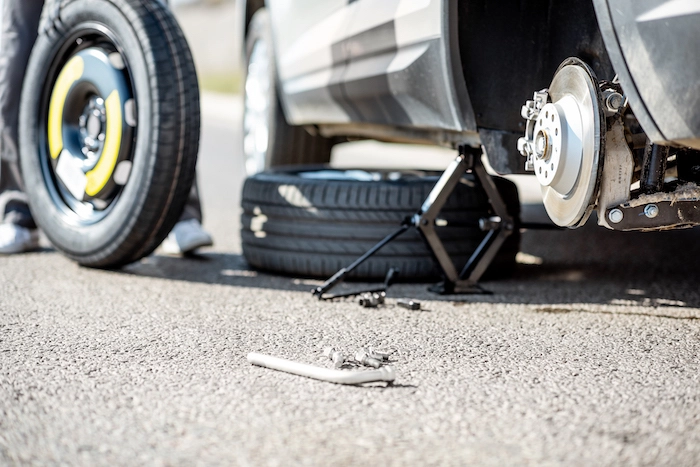
The Benefits of Wheel Balancing for a Smooth, Safe Ride
Proper weight distribution in your car is the key to its longevity and your safety on the road. Your vehicle’s wheels carry a substantial load, and when that weight isn’t evenly distributed, it can directly impact your car’s lifespan.
What Is Wheel Balancing?
Wheel balancing is a crucial maintenance procedure that ensures the weight on each tire and wheel assembly is distributed evenly. It involves placing tiny counterweights strategically to correct imbalances.
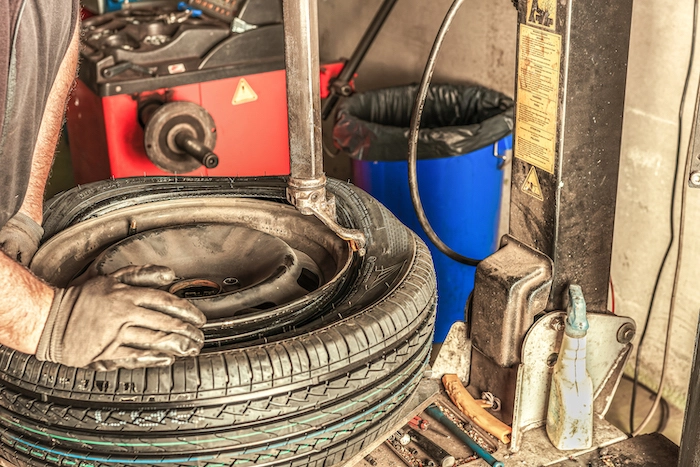
Why Is It Important?
- Extended Life: Uneven weight distribution causes uneven wear. Wheel balancing helps your tires wear evenly, extending their lifespan and saving you money on replacements.
- Enhanced Safety: Balanced wheels improve your vehicle’s handling and stability, reducing the risk of accidents, especially during sudden maneuvers or in wet, slippery conditions.
- Smoother Ride: Properly balanced wheels eliminate vibrations and noises, providing a smoother, quieter driving experience that enhances comfort.
- Improved Fuel Efficiency: Balanced wheels reduce unnecessary friction and rolling resistance, improving gas mileage and saving you money at the pump.
Signs Your Car Needs Wheel Balancing:
- Uneven Tire Wear: If you notice tires wearing down unevenly, it’s a clear sign that your wheels may be out of balance.
- Vibrations While Driving: Experiencing significant vibrations through the steering wheel or the entire vehicle is a strong indicator of wheel imbalance.
What Happens If You Neglect Wheel Balancing?
Ignoring wheel balancing can lead to:
- Increased Repair Costs: Uneven wear can damage your suspension and drivetrain components, resulting in costly repairs.
- Reduced Safety: Imbalanced wheels compromise your vehicle’s stability, making it less responsive and potentially dangerous.
- Decreased Comfort: Vibrations and noises can make your drives uncomfortable and fatiguing.
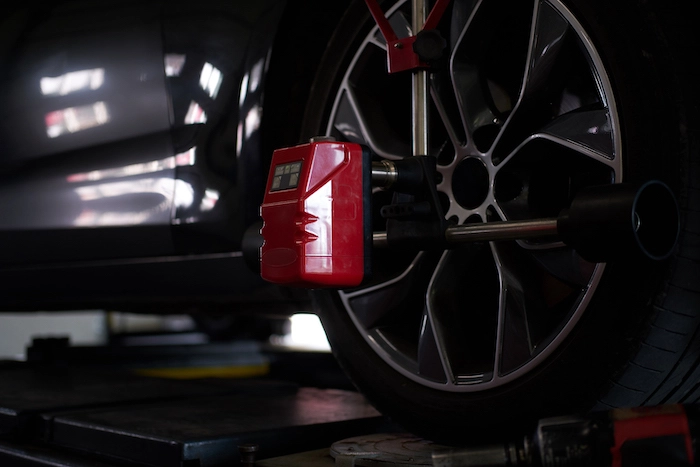
Wheel balancing is a small investment that pays off in multiple ways. It ensures even wear, enhances safety, provides a smoother ride, and boosts fuel efficiency. Don’t wait for signs of trouble; make wheel balancing a routine part of your vehicle maintenance for a longer-lasting, more enjoyable driving experience.
The Vital Role of Your Tire Pressure Monitoring Systems (TPMS)
Tire pressure monitoring systems (TPMS) are not just a convenient feature; they’re a critical component of your vehicle’s safety and performance. Here’s why TPMS is essential and how to address issues when they arise:
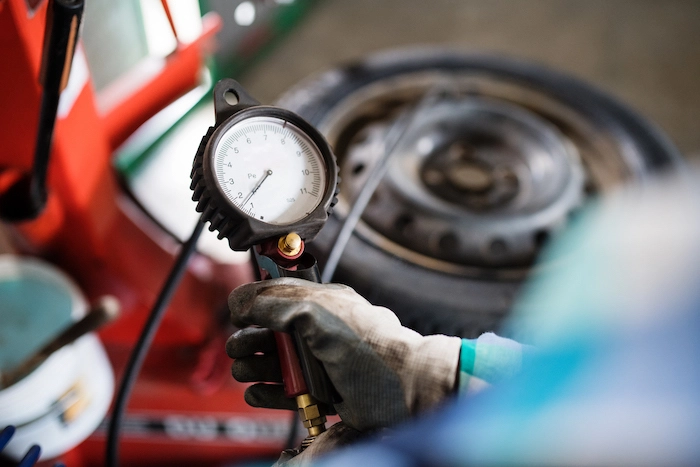
Why TPMS Matters:
- Preventing Tire Damage: Low pressures can wreak havoc on your wheels, causing irreversible tread damage. Without timely warnings, you might unknowingly be driving with dangerously low pressure.
- Avoiding Catastrophic Failures: Insufficient pressure increases the risk of catastrophic failure, which can lead to accidents and jeopardize your safety.
- Enhancing Vehicle Health: A well-functioning TPMS contributes to the overall health of your car, reducing the likelihood of costly repairs and ensuring optimal performance.
Signs Your TPMS Needs Attention:
The TPMS light blinking 3-5 times before staying solid is a clear indicator that something is amiss. It could signal a minor malfunction or, more critically, damage to one or all of your sensors.
How to Address TPMS Issues:
Repairing or replacing TPMS components requires specialized equipment and expertise. It’s a task best handled by specialists like the ones at Mission Auto Repair. Here’s the process:
- Diagnosis: Our skilled technicians will use advanced diagnostic tools to identify the root cause of the TPMS issue. This includes checking sensor functionality, battery health, and connectivity.
- Repair or Replacement: Depending on the diagnosis, we’ll either repair the faulty sensor(s) or replace them with high-quality, compatible sensors. Our team is well-equipped to handle these intricate tasks efficiently and accurately.
- System Calibration: After repair or replacement, we’ll ensure that the TPMS system is accurately calibrated to provide precise pressure readings. This step is crucial for reliable alerts and optimal maintenance.
- Testing and Verification: Before handing your vehicle back to you, we rigorously test the TPMS to confirm that it’s functioning flawlessly. Your safety and peace of mind are our top priorities.
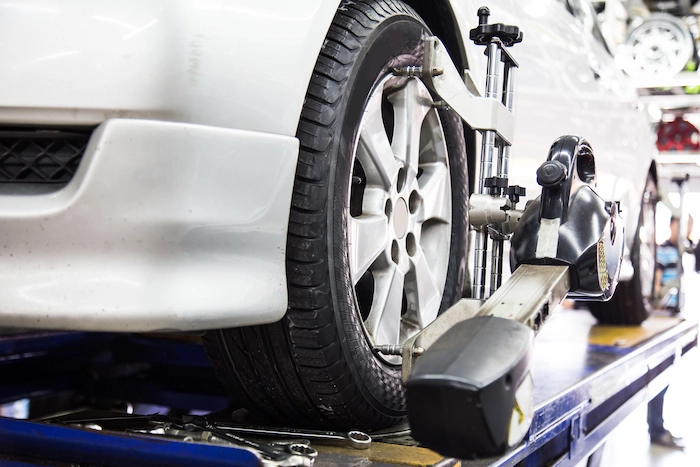
A well-functioning TPMS is very important. It is your first line of defense against tire-related issues that can compromise your safety and vehicle health. When TPMS trouble arises, trust Mission Auto Repair to diagnose, repair, or replace the necessary components, ensuring your TPMS is fully operational, and your journey remains smooth and secure.
The Benefits of Wheel Alignment for Safety & Efficiency
Navigating the road means encountering various obstacles, from potholes to bumps, that can take a toll on your tire alignment. Understanding the importance of wheel alignment and its impact on your vehicle’s health and safety is crucial:
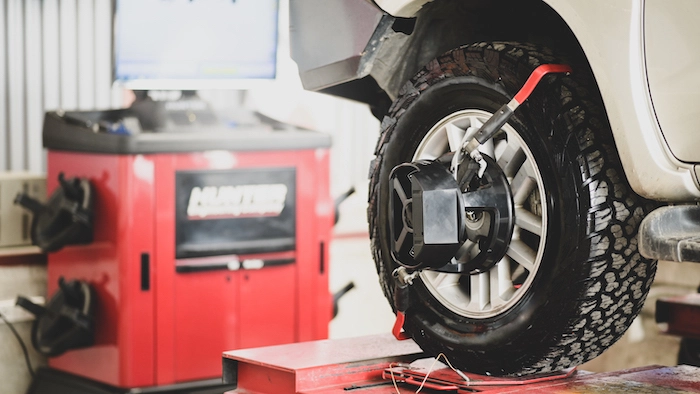
Why Wheel Alignment Matters:
- Even Tire Wear: Proper wheel alignment ensures that your tires wear evenly, extending their lifespan and saving you money on replacements.
- Enhanced Fuel Efficiency: Misaligned wheels can increase rolling resistance, forcing your engine to work harder and decreasing fuel efficiency. Proper alignment helps you save money at the pump.
- Improved Handling: Aligned wheels result in better handling and stability, reducing the risk of accidents, especially during sudden maneuvers.
- Safer Driving: Correct alignment ensures that your vehicle goes where you want it to go, reducing the need for constant steering corrections and enhancing overall safety.
Signs Your Wheels Need Alignment:
If you notice any of the following signs, it’s time to consider a wheel alignment check:
- Constant Veering: Your vehicle consistently pulls to one side, requiring steering adjustments to maintain a straight path.
- Crooked Steering Wheel: When driving straight, your steering wheel appears off-center.
The Importance of Professional Alignment:
Wheel alignment is a precise and intricate process that requires specialized tools and expertise. Attempting it without the proper training can lead to further issues. That’s where Mission Auto Repair comes in:
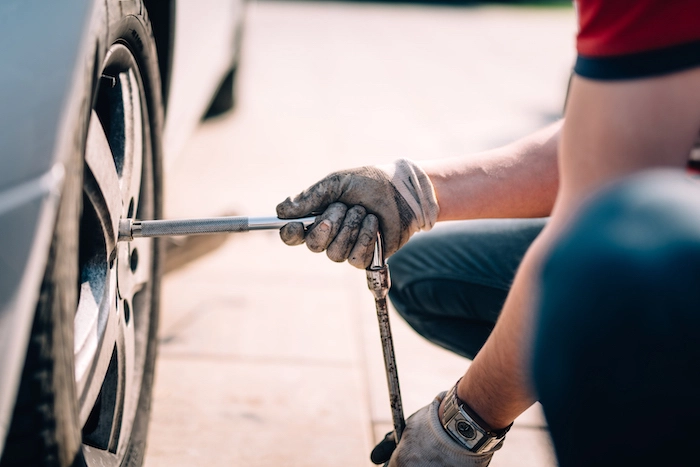
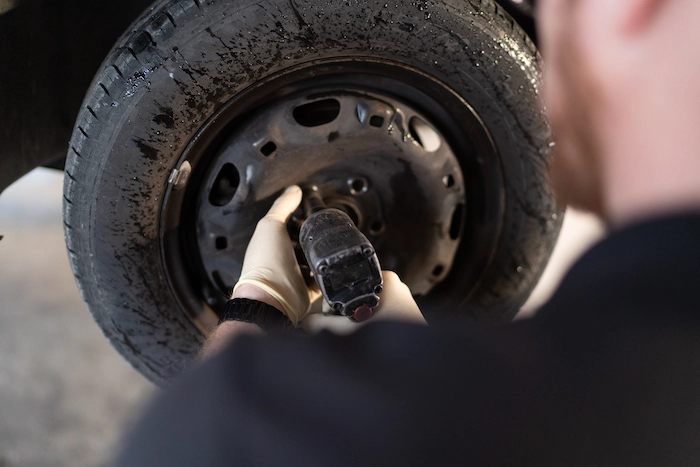
Our Alignment Process:
- Inspection: Our skilled technicians begin with a thorough inspection to assess the extent of misalignment and identify any additional issues.
- Alignment: Using state-of-the-art equipment, we meticulously adjust the angles of your wheels to factory specifications, ensuring precision and accuracy.
- Testing: After alignment, we conduct rigorous testing to confirm that your vehicle handles smoothly and that your steering wheel is perfectly centered.
Don’t underestimate the importance of wheel alignment for your vehicle’s health and your safety on the road. When you experience signs of misalignment, trust Mission Auto Repair’s expert technicians to provide professional alignment services. We’ll ensure your wheels are perfectly aligned, so you enjoy a smoother, safer, and more efficient driving experience.
Your Winchester, VA Auto Repair Service
Mission Auto Repair is here to help you maintain your tires so they last as long as possible. Whether you need replacement, alignment, rotation or TPMS services, our team is here to help. Our master technician has over 25 years of expertise and is ASE certified, meaning we can take care of any maintenance or repair job your car needs. Our expertise will save you money in the long run. Our team of dedicated mechanics is ready to help you, call today!
